Immigration (Amendment) Bill : full swing crusade against fake marriage
 Par
Jameela Jaddoo
Par
Jameela Jaddoo
 Par
Jameela Jaddoo
Par
Jameela Jaddoo
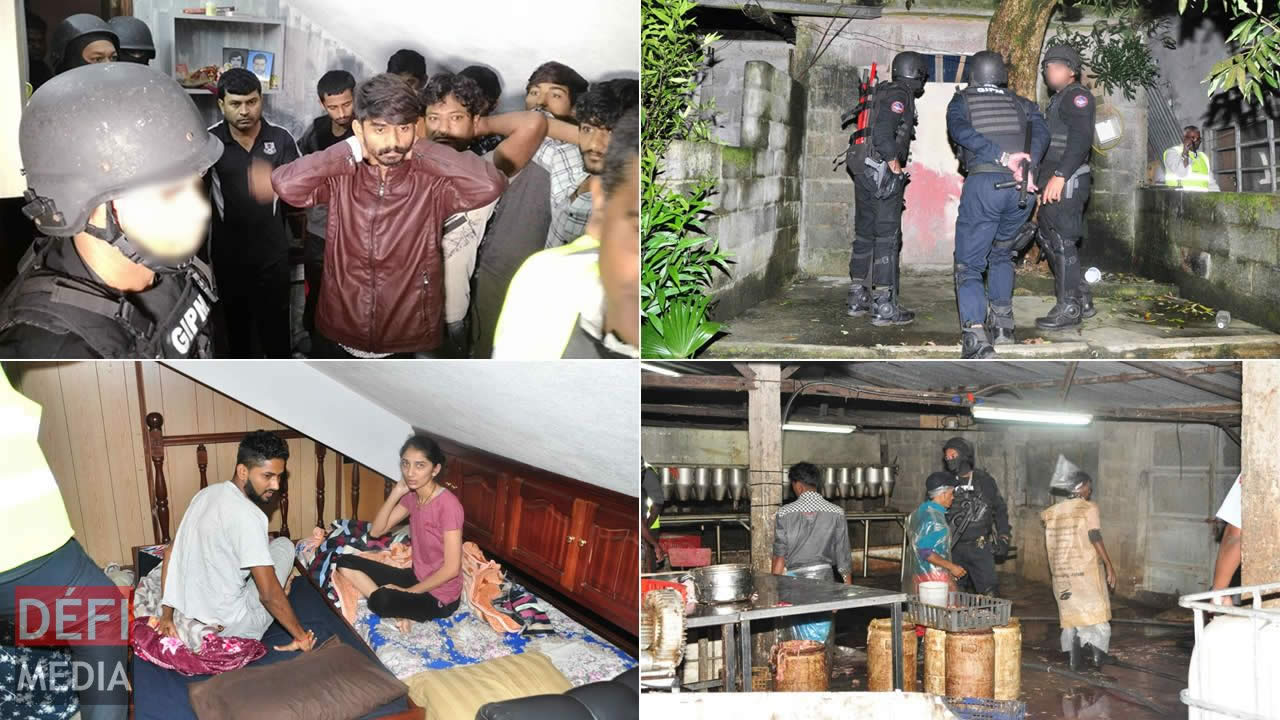
The Immigration (Amendment) Bill was voted in the National Assembly on Tuesday. While the amendments have been applauded by many stakeholders, there are certain experts who are concerned that this might results in abuse. The implications of this amendment is multi-fold. Different experts shed lights on the repercussions.
Despite the strong protests of members of the Opposition, the Immigration (Amendment) Bill was nevertheless voted in the National Assembly, without amendment. The Prime Minister Pravind Jugnauth has been insensitive to the arguments of the Opposition. He clearly stated that his priority is to protect the country and the people first. He also announced amendments to other laws, including the Citizenship Act, the Deportation Act and the Civil Status Act in the wake of the Bill that was passed.
The main objectives of the Bill are to amend the Immigration Act in view of the increase in the number of cases where non-citizens marry citizens for the sole purpose of acquiring the status of a resident. Hence, the Bill will: Regulate the entry and stay of non-citizens in Mauritius and make provision for the grant of Residence Permit, Occupation Permit and Permanent Residence Permit to non-citizens signifying their intention to reside in Mauritius.
Presenting the Bill to the House, the Prime Minister Pravind Kumar Jugnauth, emphasised that as a sovereign democratic country, Mauritius has the absolute right to take such measures with a view to strengthening and consolidating its immigration legislation, while also protecting our citizens from being the victims of ill-intentioned foreigners.
It should be noted that one of the areas of focus enunciated in the Government Programme 2015-2019 pertaining to immigration matters, relates to the formulation of a new immigration policy so as to reinforce the Immigration Act in order to cater for increasing cross-border movement of persons and its associated risks. Furthermore, the Programme also includes the introduction of regulations to address the issue of fake marriages involving locals and foreigners.
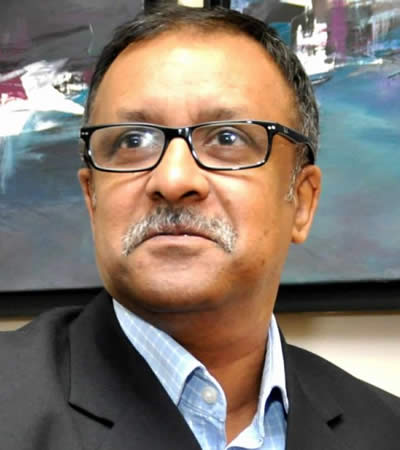 Penny Hack : “More room for abuse”
Penny Hack : “More room for abuse”According to the Barrister at Law, the newly voted Immigration (Amendment) Bill is indeed ambiguous at this stage. “Laws on immigration have always been severe in Mauritius. However, the rapidity with which MPs had to study the Bill and the fact that these amendments have been voted hurriedly have created much confusion amongst many. The terms used in the Bill are vague and the interpretations of the new laws are also multiple,” utters Penny Hack.
He explains that despite the PM’s decision not to grant citizenship to a person, the latter can still appeal his/her case in court. “There is still the possibility to appeal in the Supreme Court. Also, if this Bill increases the obstacles and difficulty for one to apply for citizenship, it is unjust. In addition, this Bill certainly discourages many people to migrate to Mauritius and apply for citizenship, especially those who are married and have children.”
Penny Hack questions whether this new Bill will not create more abuse in the country. “An institution which has power, no accountability, where the procedures are unclear and whose decisions are difficult to be contested implies that there is no transparency at all. Its decisions thus become arbitrary. This is how people can then be tempted to have recourse to various abuses to obtain the Mauritian passport and citizenship. Counterfeit applications should be rejected and those where thick envelopes are handed over should be strictly rejected.”
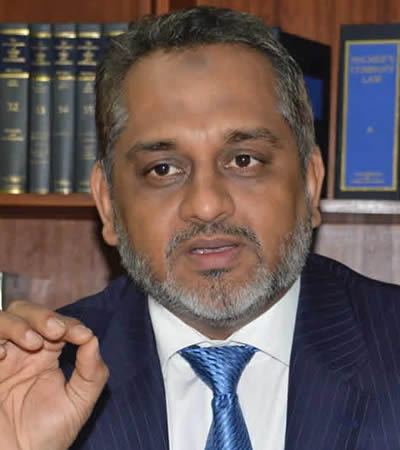 Reza Uteem : “Amendments should also be made to the Deportation Act”
Reza Uteem : “Amendments should also be made to the Deportation Act” Reza Uteem explains that one positive aspect of the amendment is exclusion of physically and mentally handicapped person from the prohibited list. However, he states that amendments should also be brought to the Section 4 of the Deportation Act where the categories of persons that are subjected to deportation include a destitute person, which means a person who is likely to be mentally or physically challenged. He also clarifies that people need to differentiate between the Immigration Act and the Non-Citizens (Employment Restriction) Act. While the first one deals with Residence Permit, the second one is about Work Permit. They are both different and should not be mixed, he says. “The Immigration Act is all about controlling the immigration process in Mauritius. There have been cases where many individuals have married for the sake of getting a job.”
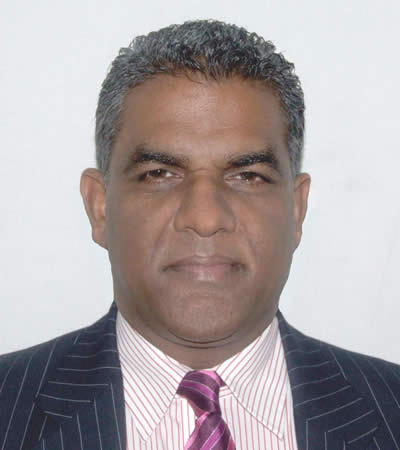 Dev Erriah : “There are more fake marriage cases than genuine ones”
Dev Erriah : “There are more fake marriage cases than genuine ones”For Dev Erriah, this new Bill will have more positive implications. “I trust that this Immigration Bill is very appropriate, as it weeds out the bogus cases, for example, where marriages are contracted solely for the purpose of being able to stay in the country. We have many cases of African students who are having recourse to this as well as Indians and Bangladeshis. On the other hand, French and Belgium nationals contract bogus marriages in order to enjoy fiscal advantages in Mauritius where taxes are of only 15%. We indeed have thousands of foreigners who are living under the radar. There are more fake cases than genuine ones. This law will thus help to regulate our immigration and citizenship framework.”
He explains how some foreigners marry Mauritian citizens but get a divorce within one or two years. “However, they remarry another citizen within six months in order to be able to continue to stay in the country. These people got married with the only aim of gaining citizenship. What is sad is that many young women are fooled by these individuals. Also, often when these foreigners have obtained their citizenship, they file for divorce and leave their Mauritian spouse to marry somebody from their country of origin. They thus take advantage of Mauritians,” he utters.
The Barrister at Law argues that there is a presumption about the Prime Minister gaining too much power since people are discussing this Bill a lot, a factor that is not relevant. “The power of the Prime Minister, when it comes to immigration law, has always been the same. The person can appeal the decision at the PMO itself and also appeal for a judicial review. There exist many cases where the Mauritian judicial perspectives were sought.” He underlines that information and advice that the Prime Minister gets in order to decide whether to grant or not citizenship to a person is totally reliable. “This is so because when someone files for a citizenship application, the National Intelligence Unit (NIU) does a thorough inquiry on the person: Where he/she resides in the island, his/her job, amongst others. Most importantly, a background check is done on the individual and information is sought from the International Criminal Police Organization (INTERPOL) and other instances if the person is from African countries, Asia, and so on and so forth. This information is then provided to the PMO.”
Dev Erriah cites the recent case of an African national whose citizenship application was rejected following serious information that was obtained. “It was found that the African national was involved in a dangerous sect in his country and wanted to propagate it in Mauritius. His application was thus rejected based on judicious information obtained through inquiry. Everything is done based on the merit of the case.” He, however, states that the procedures of the acquiring of citizenship take more than a year. “In some cases, it is obtained in a year and a half, whereas for others it may take three, four or more years. There is no specific timeline, as all cases are different.”
The Barrister at Law reveals the case of a Malagasy national who tried for Mauritian citizenship. “The individual had two children from a previous marriage to a Malagasy national and both children had the Malagasy citizenship. When the person married a Mauritian, he/she encountered lots of issues to obtain the Mauritian citizenship due to various reasons, namely that the person did not tell the truth about his/her job and thus got a bad report. In addition, his/her children came to the country on student visas and it was complicated to apply for citizenship. This, for example, is a genuine case which has, however, encountered obstacles.”
He cites the example of two cases where individuals have obtained their citizenship without any hassle. “A well-known leadership expert obtained his citizenship within days and did not even stay in the country as well as another high profile person belonging to a hotel group. This is why I trust that this Bill will allow our immigration framework to become more selective, prohibit unlawful immigrations and better protect Mauritians who are likely to be duped by scrupulous individuals.”
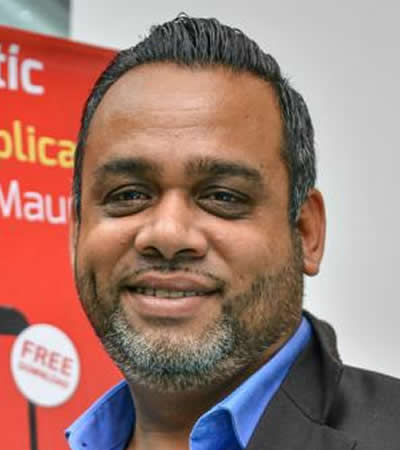
CEO of GIBSON & Hills, Nadeem Mosafeer, reveals that Mauritius has already a set of well established procedures for non-citizens and there was no need for other amendments. “The amendments came at a time where it has only created confusion. With this step, we have only moved two to three steps backwards. We have sent the wrong signals. Many expats who were willing to relocate and invest in Mauritius will slow down the process. Before coming with this amendment, there should have been more awareness. Just coming so quickly with such a law only worsens the situation.”
He further explains that Mauritius has always been a selective destination and people know about this. “The Government could have only strengthened the procedures rather than just bring an amendment so hastily.”
This amendment has created much stir among expats who are living in Mauritius and those who were willing to relocate in our country. Various expats have shown their concerns on social media. While some are talking about the lack of information, others are feeling afraid of being deported. We have talked to several expats regarding this issue. There seems to be a lot of confusion prevailing. First, there has been the Non-Citizen Employment Restriction Act voted on 21st March and now the Immigration amendment. In addition to that, another confusion was the Immigration Act excluded the handicapped. The confusion was further fuelled by a Member of Parliament.
After listening to the various debates, a South African family having a child with handicap was stressed and did not know what to do. They even thought of leaving the country, as they felt they could face discrimination.
An Australian who has been living in Mauritius for four years now states that she does not understand why Mauritius is applying such a strict law, as it is not necessary for a small island like us. “Fake marriages are most common in countries like US and UK but not in Mauritius. The amendment has brought more fear.”
Another Indian expat who has recently landed in Mauritius seems to be really confused and did not understand much about what is happening. She is currently working and says she lets the Prime Minister decide on her fate.
A South African man has been working in Mauritius for quite long time. He is quite surprised about the new amendments. He believes that powers should not be vested in the Prime Minister only.
The illegal immigration in Mauritius has in fact gained momentum since the recent years. According to statistics from the Passport Immigration Office, since 2014, 1,125 undocumented migrants have been repatriated and 1,316 applications for immigration were rejected. In addition, 200 foreigners have disappeared from the radar of the Mauritian authorities. Nearly 500 foreigners were deported in 2018. They were repatriated because they were suspected of engaging in shady practices in Mauritius.
Among the recent cases of illegal immigration which were uncovered are three networks of Nigerian nationals, who have already obtained their Mauritian citizenship, inviting their compatriots to contract bogus marriage contracts with Mauritians. They also made false employment promises against money.
This was discovered in February by the officers of the ‘Tracking Team’ of the Passport and Immigration Office (PIO), who arrested four Nigerians in the regions of Grand Bay and Pereybere. These illegal immigrants landed in the country in July 2018 on a four-day tourist visa. They, however, stayed in the country for seven months. Their Nigerian contact in Mauritius had promised them work in the construction sector against the sum of USD 5,000 paid to their Nigerian recruiter before flying in Mauritius.
Forty-five illegal foreign workers in Mauritius were arrested in January this year by officers of the Passport and Immigration Office. In December 2018, two Malagasy women were arrested for prostitution in the north while they were allegedly employed as massage therapist. In September 2018, a Passport and Immigration Office operation in the Grand Bay area also led to the arrest of four Malagasy nationals for prostitution.
Moreover, eight Congolese were sentenced to ten months’ jail time in November last year after having found guilty of falsifying the Mauritian identity card. The crimes were committed between October 11, 2016 and March 14, 2018. They claimed that they had fled their country due to civil war. They appeal for political asylum but the court indicated that it is not entitled to consider their request, as it only tackles criminal trials.
The Passport Immigration Office in Mauritius, in close collaboration with the Government, is in fact working on two new projects in order to better handle illegal immigration cases.
The first is the ‘Advanced Passenger Information System’, which will allow the authorities to know the history of the person who wishes to stay in the country. The second project is the bio-metric passport. The government aims to introduce a computer system that can be used to authenticate the identity of the passport holder.
 J'aime
J'aime